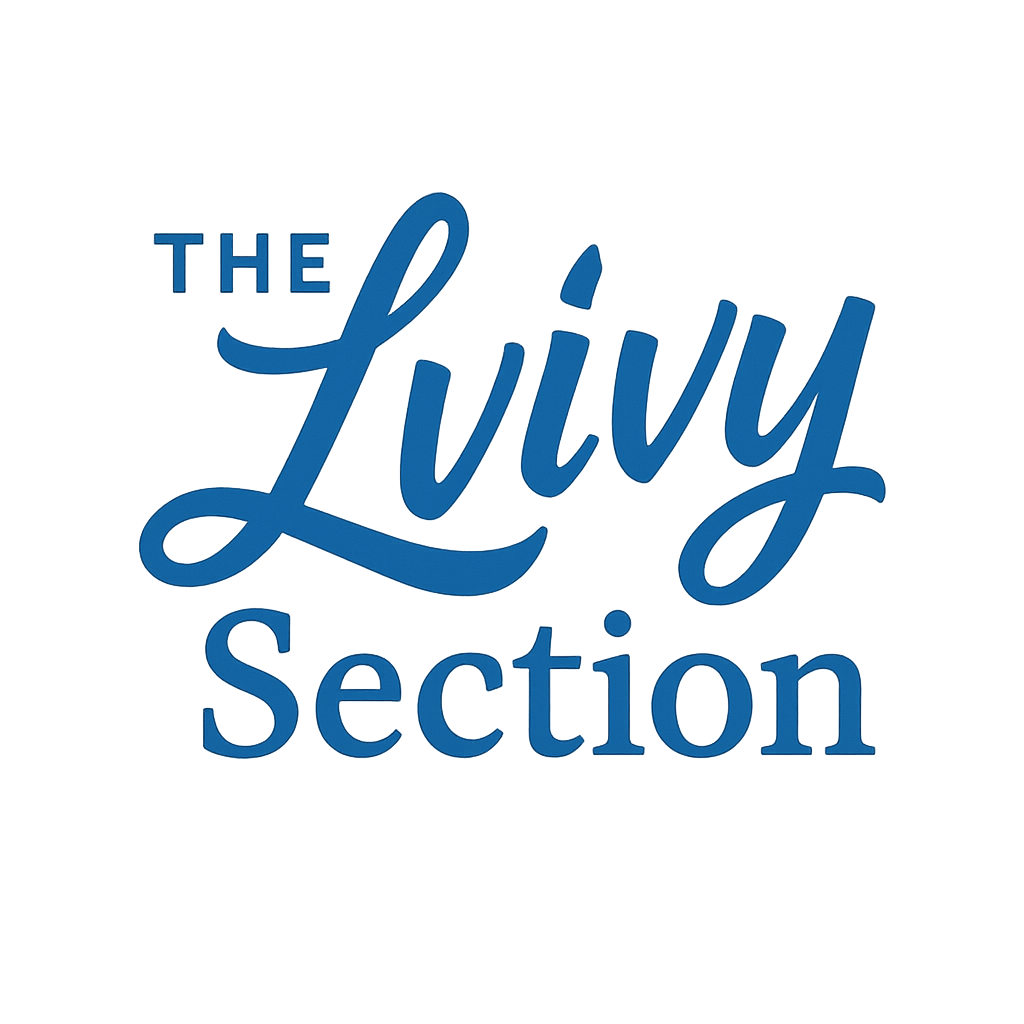Lviv is an old city, but it’s growing and developing. This juxtaposition between old and new is visible everywhere — also at the university. The language school/faculty that offers the language course was officially established in 2002. And yet, the university’s predecessor goes back to 1928 — meaning the Soviets had time to leave their mark too.
The location
The Ukrainian Catholic University campus I’m on is located directly next to Stryiskyi Park and is not far from Lviv’s historic city center. The park itself is beautiful and feels like an extension of the university.






The campus
The campus itself is quite modern and has quite a lot of facilities near each other — a restaurant, a coffee corner, a bar, a library, a gym and multiple dormitories.
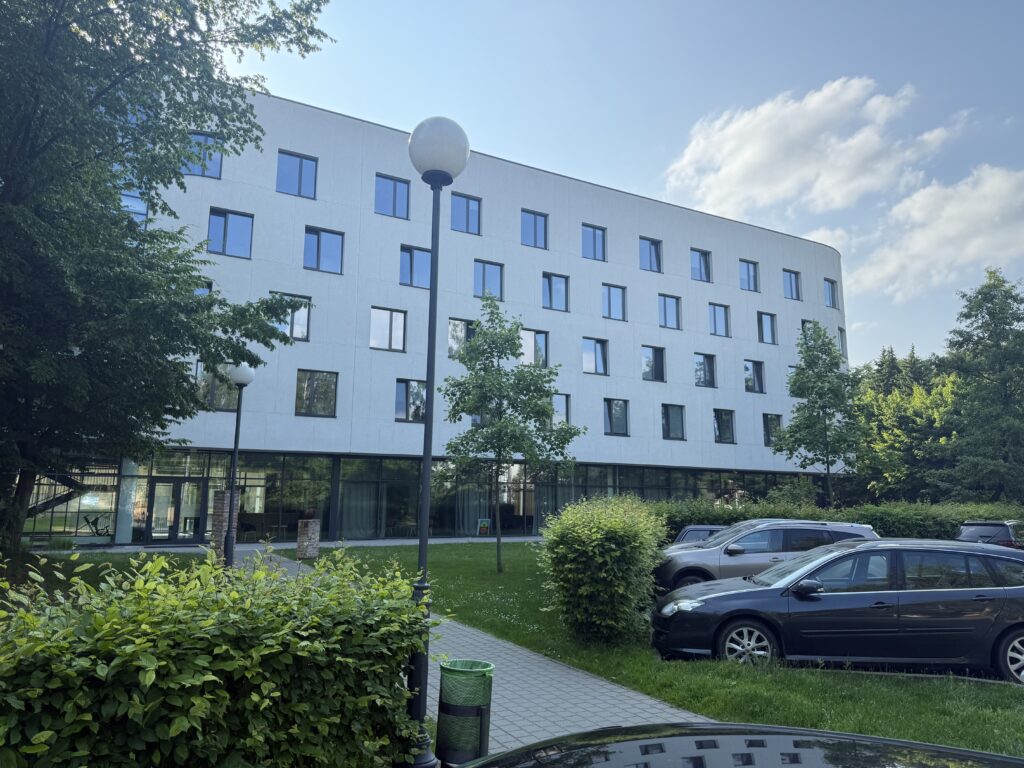
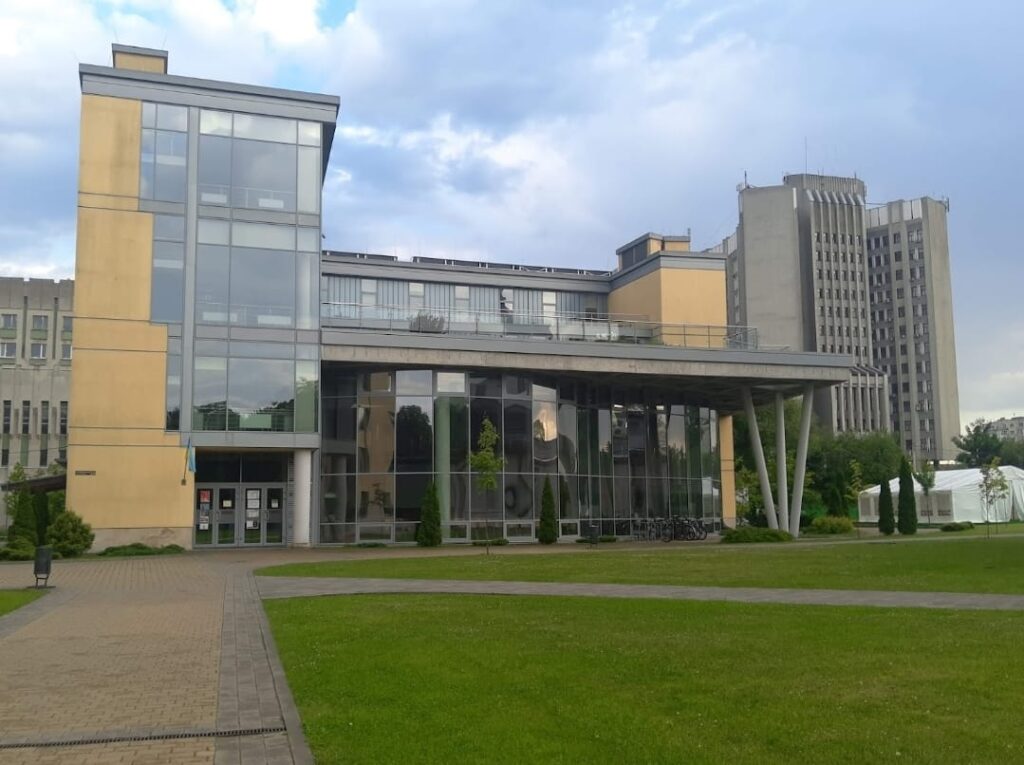
The restaurant (or rather: ‘trapezna’/refectory) serves really good food, with a different menu every day.



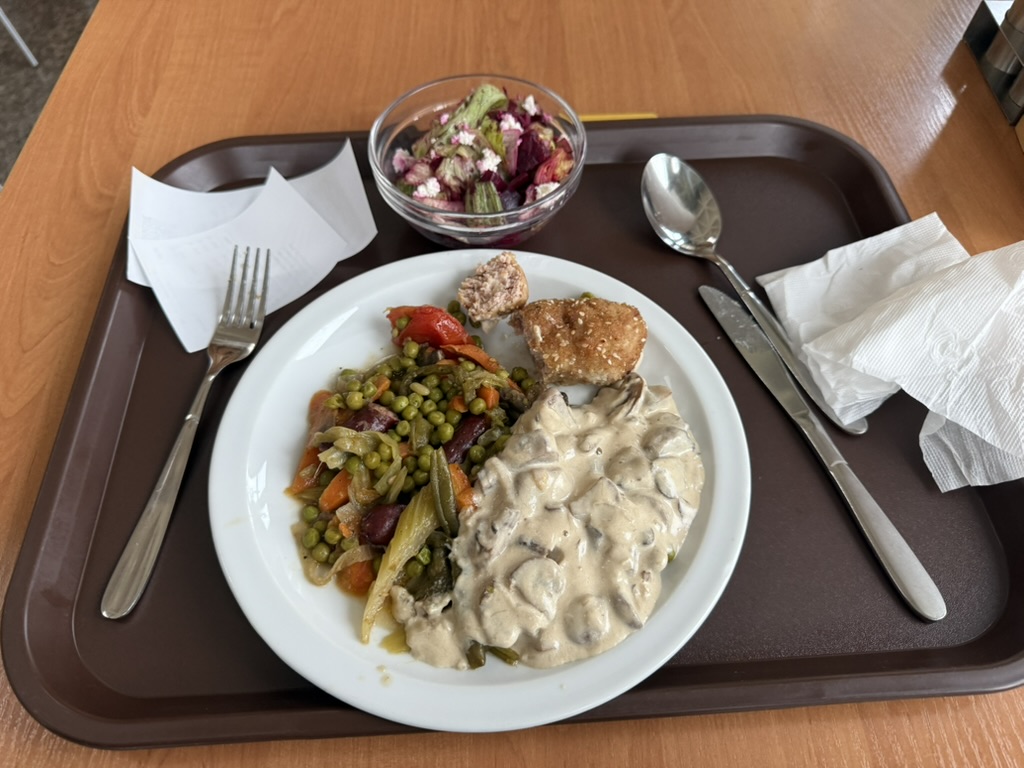

The church
At the very center of the campus is a church. Multiple churches, actually! Beneath the main chapel, there’s two more chapels. All of them quite new, but fully functional. There’s some empty walls, showing room for generous donations to decorate the church more.

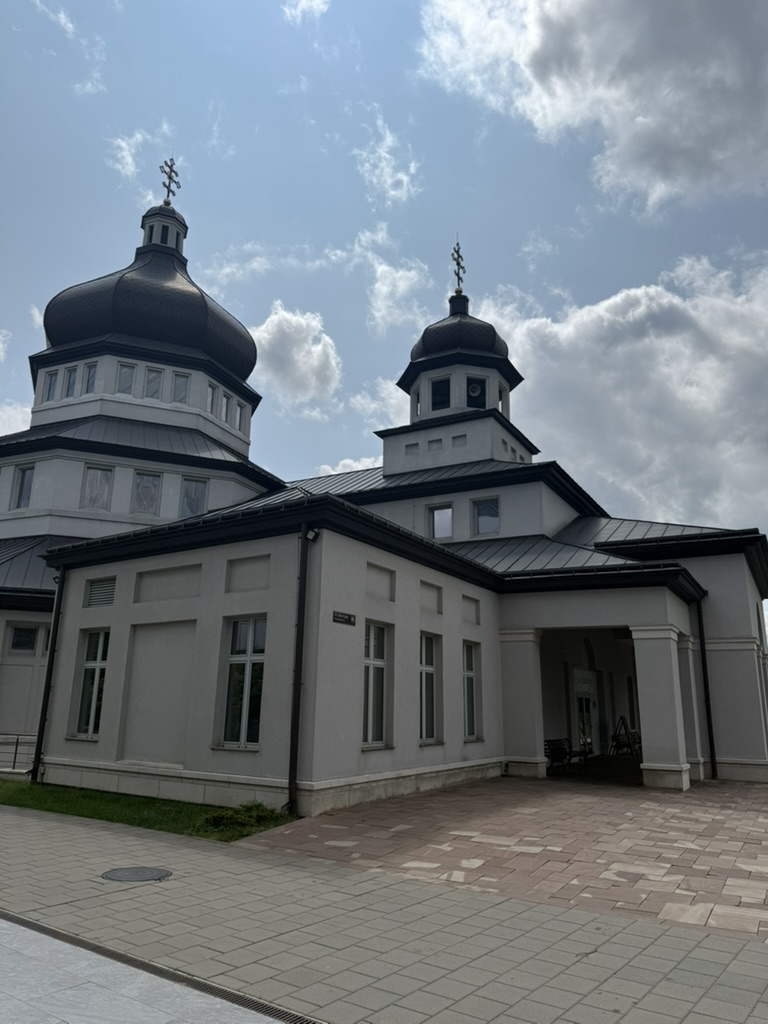

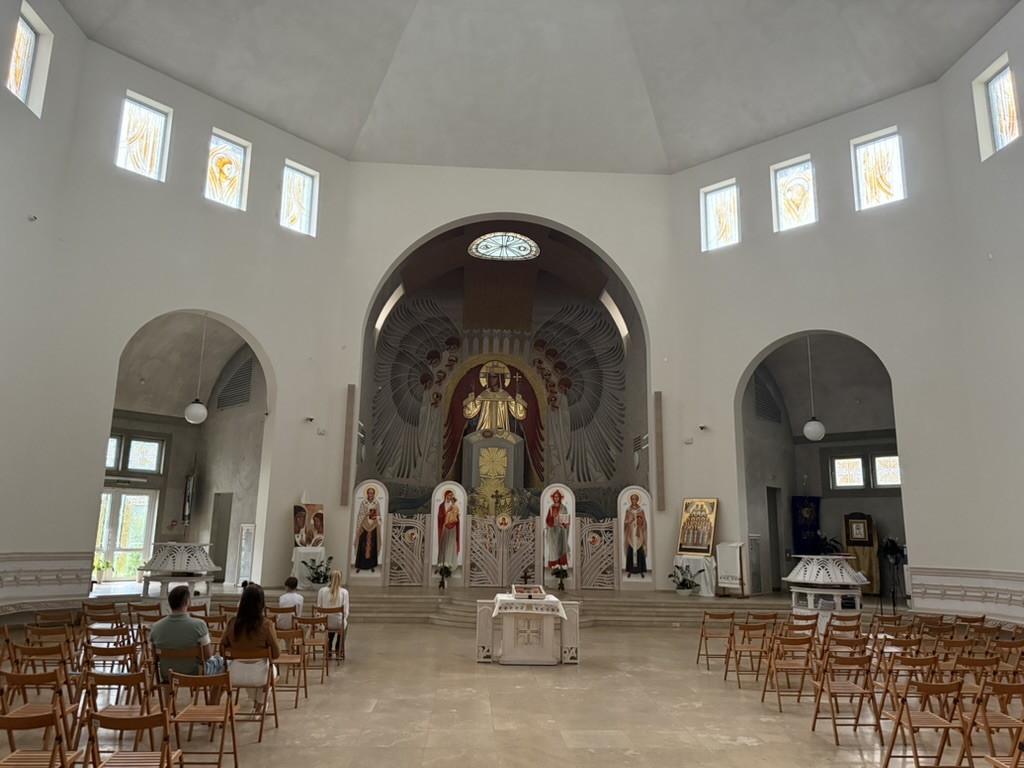

The darkness
The very grounds beneath the church hold some dark history as well. This wasn’t always a place of peace and serenity. I understood the communist party in soviet times was building accommodations for party members (mostly KGB) on this very terrain. After the collapse of the union, the communist building was demolished. And instead they built a church there — quite the reckoning with the past.
Not all Soviet legacy was sanctified, though. Looming just outside the campus is a huge brutalist building sucking the color from the sky. It used to be a regional headquarters of the communist party. Fittingly, today it’s a tax office building. To be fair to tax offices world-wide: I suppose there is no fitting style for a tax office. So in a way, this building is perhaps the best cover to judge the book by.
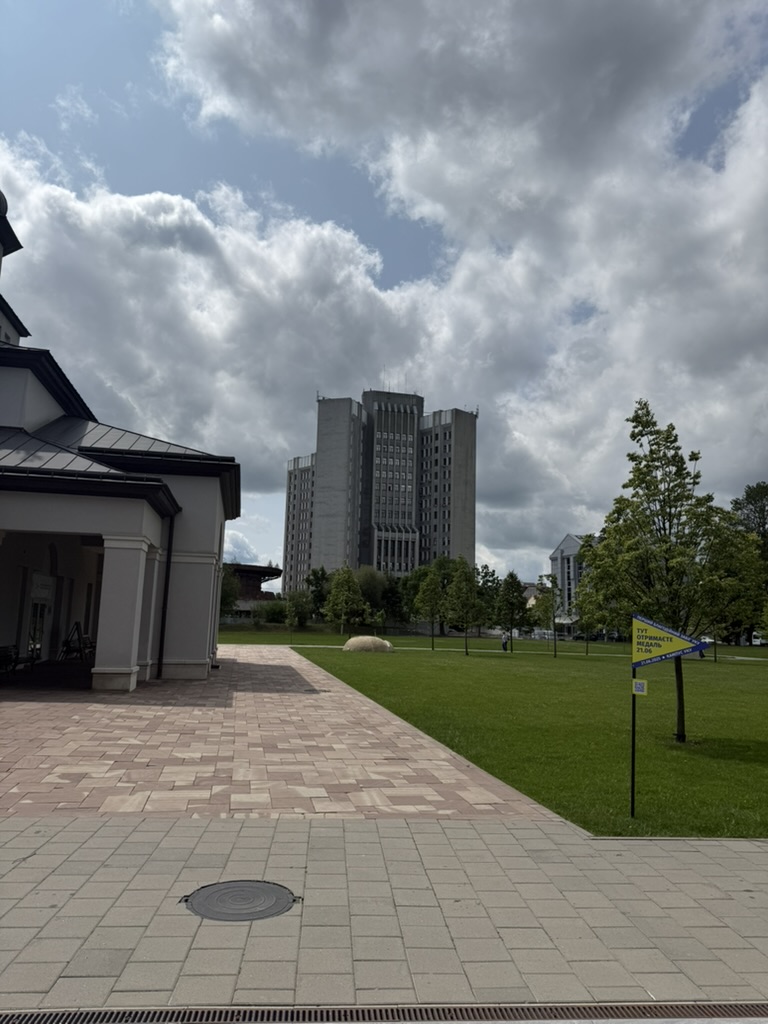

The campus life (rules)
Overall, the vibe is calm and pleasant here. The interesting rules of this place may have something to do with that.
For example: we are expected to be in the dormitories by 23:00 hours (an hour before the official curfew). Our access badges won’t work after those hours. We can knock and security would open the door to let us in. One could say this is merely a measure for security or to prevent nuisance. Alternatively, one could argue this policy nudges people into socially desirable behaviour and prevent drunks stumbling to their rooms late at night. After all, it is a university “educating its students to be ethical and moral leaders.“
Another example: the dormitory rooms are not intended for people to linger in — this was literally said to me by one of the course facilitators. The rooms are generally shared with two or three people, so privacy is limited. (I paid to have a private room, I should add.) There are no televisions, coffee machines or other kitchen appliances in the rooms — and they are not allowed to be brought in. Due to power limits, fire safety or space constraints? Or, because this policy might nudge people to go out and actively mingle? After all, “Important for the university are respectful, joyful, and live-giving [sic] relations among people. UCU’s goal is to form not only the rational potential of relationships.” (I do wonder how to interpret ‘life-giving relations’. Does it simply mean ‘inspiring’ or ‘invigorating’? Or does it hint at ‘family-building’? This is a Catholic university, after all, in the most conservative religious region of the country.)
Overall, the rules are fascinating to me. They would not fly on a Dutch university (campus) — there, ‘authorities’ already have difficulty establishing themselves in any student home beyond the front door. They’ll have their hands full getting students to stop putting their bicycles in the hallways inside their home despite the safety hazard. Or getting students to stop blocking emergency exits with couches. (To be fair, students will obey and remove those couches — at a moment of their own choosing by defenestrating them into a bonfire enjoyed by a large crowd drinking themselves into a hangover.)
In conclusion
The peace and serenity in and around the university campus is quite pleasant, the food in the restaurant is really good, there’s natural beauty all around, and the people are friendly and welcoming.
I think I might have thrived at this university as a full-time student — despite not being religious, despite having Dutch (in)sensibilities, and despite preferring free coffee in a private space. I suppose I can leave couches and bicycles where they belong.
Like anything (and anyone) with history, this institution has some contradictions and subtly unresolved tensions. Especially a religious university is already born with them. But it is perhaps the very presence, handling and embrace of those tensions that give this place its atmosphere, soul and indeed make it so ‘life-giving’.
